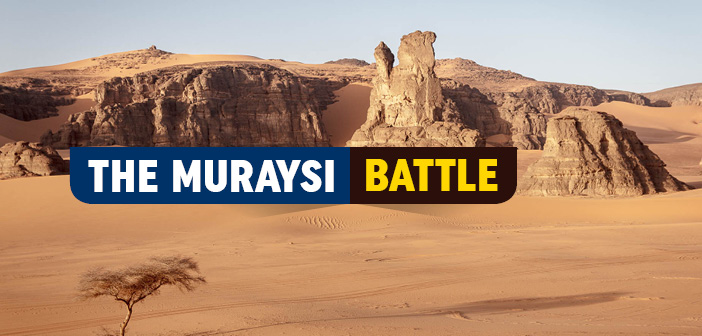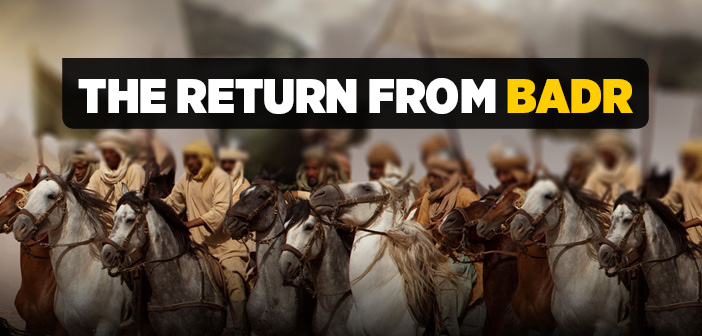What is muraysi battle? What happened in the battle of muraysi?
The Battle is also called Banu Mustaliq, after the tribe who, beguiled by Meccan provocations, had begun preparing a large army to attack Medina. Hearing their plan, the Noble Messenger -upon him blessings and peace- mobilized an army of seven-hundred to meet them. So the two groups met. The Blessed Prophet -upon him blessings and peace- told Omar -Allah be well-pleased with him- to say to them, ‘Say La ilaha ill- Allah and protect your lives and properties!’ Not only did Banu Mustaliq reject the offer, they also shot the first arrow that got the battle under way.[1]
The Muslims ended up routing Banu Mustaliq, near the Muraysi Water, at the end of a swift onslaught. Ten enemy soldiers were slain on the field, while a single Companion was martyred. A wealth of spoils and captives, including Juwayriya, the daughter of Harith, the chieftain of the tribe, were seized after the Battle.
The captives were being released, one by one, in return for their ransom. Juwayriya had meanwhile fallen to Thabit ibn Qays’ lot. She made a formal request to the Messenger of Allah -upon him blessings and peace- for her ransom. Her father, too, had come in the meantime. Citing her nobility for being the daughter of a chieftain, he was vehemently insisting her daughter could in no way be enslaved and was pleading for her dignity to be protected. Pointing to some camels he had brought with him, he was saying, “These are my daughter’s ransom. Please, let her go!”
Then unexpectedly, the Blessed Prophet asked him where he was hiding ‘the two other camels which he had not brought?’
The stunned Harith, who could have sworn no other soul, except for himself, knew he was hiding two camels in the nearby valley, accepted Islam there and then with the rest of his entourage.[2]
In what followed, the Noble Messenger -upon him blessings and peace- asked Juwayriyah’s opinion. She intimated that she would prefer to remain by his side, upon which the Blessed Prophet -upon him blessings and peace- personally reimbursed her ransom and set her free. (Ibn Sad, VIII, 118) The free Juwayriyah accepted Islam, entirely of her own accord. Yet another Divine blessing was to take place soon after: She had the honor of marrying the Seal of the Prophets -upon him blessings and peace-, the realization of a dream she had previously seen. This was the very reason she preferred to stay with the Blessed Prophet -upon him blessings and peace-, even though she could have been freed, if she wanted to, through her father paying her ransom.
Upon receiving the news that Juwayriyah was to be wed with the Prophet of Allah -upon him blessings and peace-, the Companions thought it would not be right for the now relatives of the Blessed Prophet -upon him blessings and peace- to remain captives, so they set them all free. Aisha -Allah be well-pleased with him- is later known to have commented in regard, “We have never seen a woman with greater virtue than Juwayriyah from among her tribe. A hundred households were freed from Banu Mustaliq thanks to her.” (Abu Dawud, Itq, 2/3931)
As is clear, the Prophet’s -upon him blessings and peace- marriage to Juwayriyah carried a strictly political impetus, and in accordance with the Almighty’s pronouncement:
“Nor does he speak out of desire. It is naught but revelation that is revealed…” (an-Najm, 3-4), it was not from desire, but was rather carried out in line with the Divine Purpose that had he been inspired with. The captives of Banu Mustaliq in fact were set free, free of return, and more importantly, they entered the ranks of Islam in their entirety.
[1] See, Waqidi, I, 407.
[2] See, Ibn Hisham, III, 340.
Source: Osman Nuri Topbaş, The Prophet Muhammed Mustafa the Elect II, Erkam Publications





